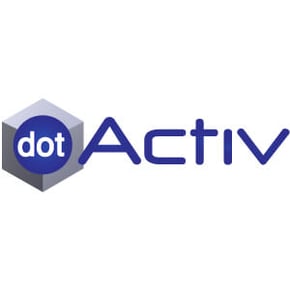Every employee in your retail business has a specific role they fulfil. Of course, in some instances, the functions one person performs in one department can overlap with another. When that happens, there should be openness and a free flow of information. However, there are other times where it makes more sense to restrict access to information to only those people who need it.
That is where something like a role-based access control system can play a critical part. Keep in mind, though, that this is not about hiding information from your employees or avoiding accountability. We would encourage neither. Instead, it is about ensuring that the right people can perform their roles at the standard or level expected of them.

What is role-based access control?
Role-based access control is, by definition, a mechanism that allows you to restrict system access and "involves setting permissions and privileges to enable access to authorised users". In that, you may hear many refer to it as role-based security.
As cyber security software and services company, Imperva, points out, by using such a system, an organisation can assign a role to each of its employees based on their function. "The role determines which permissions the system grants to the user."
Let us say, for example, that you have a team of sales consultants in your business. As part of their role, they would need to provide the best possible service to your clients. As a result, they might need direct access to your IT support team so that they can log support tasks for them if and when need be. It is a rule we have built into the user roles for our Sales team in Activ8.
With the right role-based access control system in place, you could set up a user role that allows for your sales consultants to do this. Meanwhile, you might have another department that does not deal with clients directly and so they would not need such access. The user permissions given for this department would thus not be the same.
Of course, it’s not just about user role permissions. In their paper presented at the 15th National Computer Security Conference, David Ferraiolo and Richard Kuhn point out that role-based access control is also appropriate for promoting company security policies.
“Role-based access control (RBAC) … allows and promotes the central administration of an organisational specific security policy.” That is one of the many benefits of using this access control mechanism, which we will dig into in the next section. For now, it is worth pointing out that it provides a method of processing the needs of many commercial organisations.

Why use role-based access control in your business?
There are several reasons why it's worth using a role-based access control mechanism in your business. Below are only a few benefits.
It is worth noting that we have not listed them in order of importance. Each is equally important, and you can use one or more benefits to argue for using it in your business.
1. It provides different levels of security for your business
The first and most obvious benefit of using role-based access control in your business is that it allows for better security. This security can refer to all parts of your business.
However, let us consider user role permissions as an example.
We have already made mention that each person or department in your organisation has a different role to play. They would thus each need access to different sections of your business. By implementing a control mechanism connected to their job role, you can manage who has access to what and ensure information security.
“Once all … employee roles are populated into the database, role-based rules are formulated and workflow engine modules are implemented,” write Trey Guerin and Richard Lord of Network Security Consulting.
What is more, you can enter and update these role-based privileges quickly. “By controlling users’ access according to their roles and the attributes attached to those roles, the RBAC model provides a companywide control process for managing IT assets while maintaining the desired level of security,” add Guerin and Lord.
As a result, you can minimise any unauthorised access or leaks of classified information because you have set up ‘firewalls’ between roles. And, if there is a leak of such information, you should know where to begin to address it.
2. It reduces administration work and simplifies systems
Besides providing your company with an extra level of security, a role-based access control mechanism can also help to reduce any administration work.
Here, we can use the example of onboarding new employees or changing roles for existing staff. And let us say you have already purchased access control software. Thus, when a new employee begins work, or a current employee needs to switch roles, you do not need to fill out any unnecessary paperwork or request password changes.
“The administrative benefits of allowing a new employee to quickly assume his or her duties by having access permissions more quickly are potentially substantial,” writes Michael Gallaher, Alan O’Connor, Brian Kropp and Gregory Tassey in their report - The Economic Impact of Role-Based Access Control.
What is more, it simplifies systems administration costs.
“First, the greater employee turnover, and in turn the number of people changing roles, the greater the cost-saving of RBAC relative to other access control systems,” explains Gallaher, O’Connor, Kropp and Tassey.
“Second, some firms or organizations are very dynamic, and user roles and permissions change quickly. In these environments, RBAC is more efficient in moving users in and out of given roles and changing the permissions of given roles than competing access control systems.”
3. It helps to maximise efficiency and increase productivity
A direct benefit of a simplified administration system is maximised efficiency and increased productivity.
Let us go back to the user role permissions example. This time, we’ll make reference to role hierarchies. By that, we refer to how role-based access control allows for roles to inherit other roles and thus form levels or hierarchies. This allows for further administrative efficiency.
For example, all Operations Managers are hierarchically above the Sales team in the business. If the Sales team has certain privileges and access rights, the Operations Managers will inherit these. Thus, anyone who is authorised to have Operations Manager access will also have Sales team functionality.
RBAC provides the capability to visualise and manage user privileges across heterogonous platforms and applications,” point out Gallaher, O’Connor, Kropp and Tassey. “By centrally storing and managing roles as both collections of users and collections of privileges, RBAC is able to define, constrain, review, and enforce access control policies as users/roles, role/role or role/privilege relations.”
As for helping to increase productivity, that comes back to simplifying administrative work. Instead of your IT team having to manage everyone’s permissions, which includes resetting passwords, setting up accounts and more, you can give each individual the access they need. Let us say everyone receives a base user role permission based on their role. Since a role-based access control mechanism can define the roles before a new employee joins, you can simply kick-start the process and let the software do the work. Their access is pre-defined. This is the same for any staff member moving to a different role within your business.
The result is that you can reduce any unnecessary workload for your team and allow them to focus on more important tasks.
Conclusion
Activ8 can be used to effectively manage all user roles within your business. This team management software enables you to set-up each role within your business and allows you to personalise the access each role will have. You can develop these roles from scratch and tailor them to the needs and requirements of your organisation.
If your business needs software that will help you to effectively manage user roles across the organisation, sign up to Activ8 for free for the first four months. Your first 20 users will remain free ongoing.


